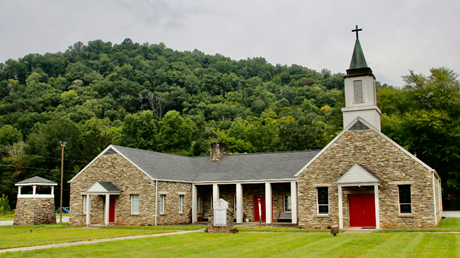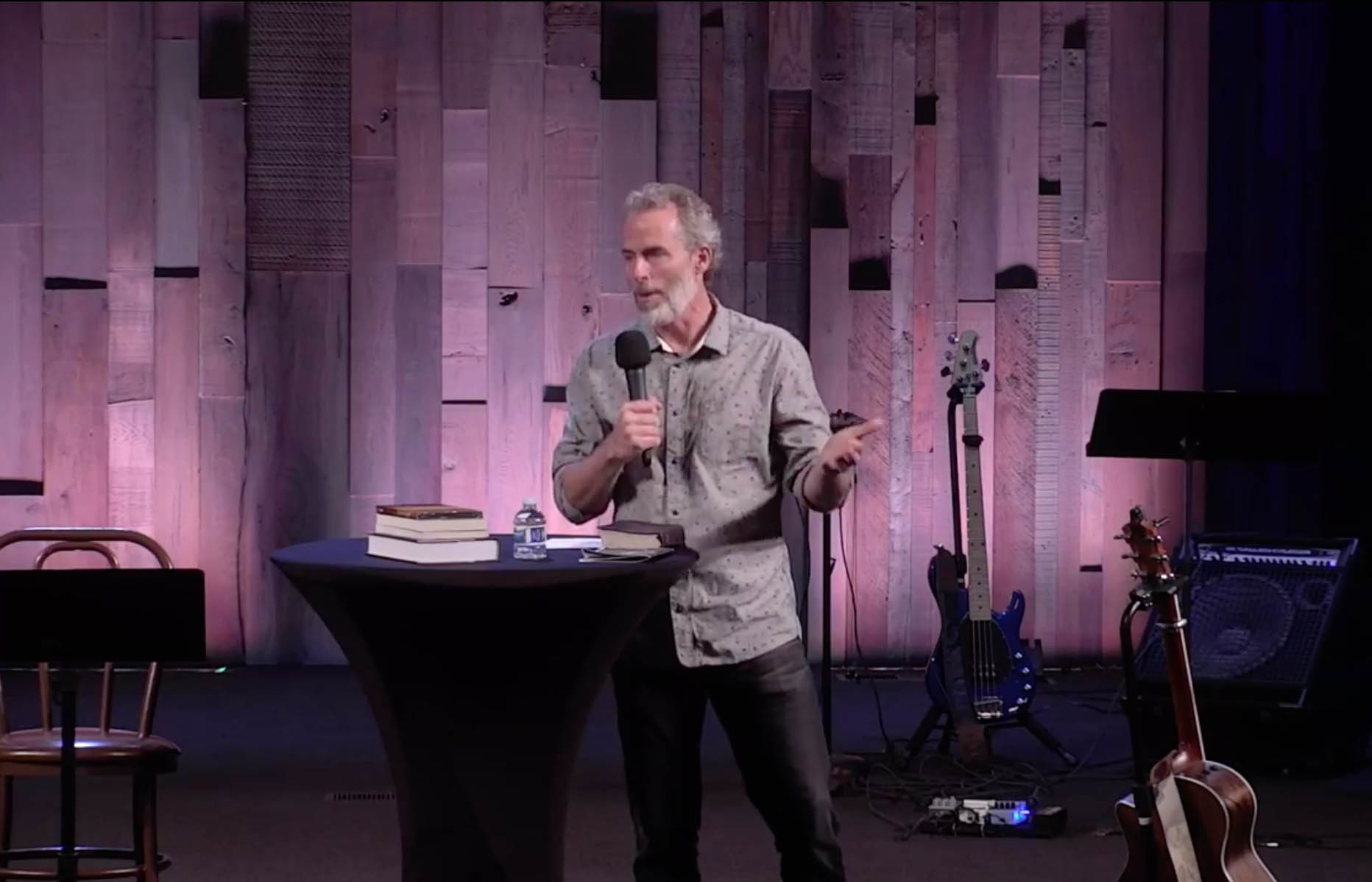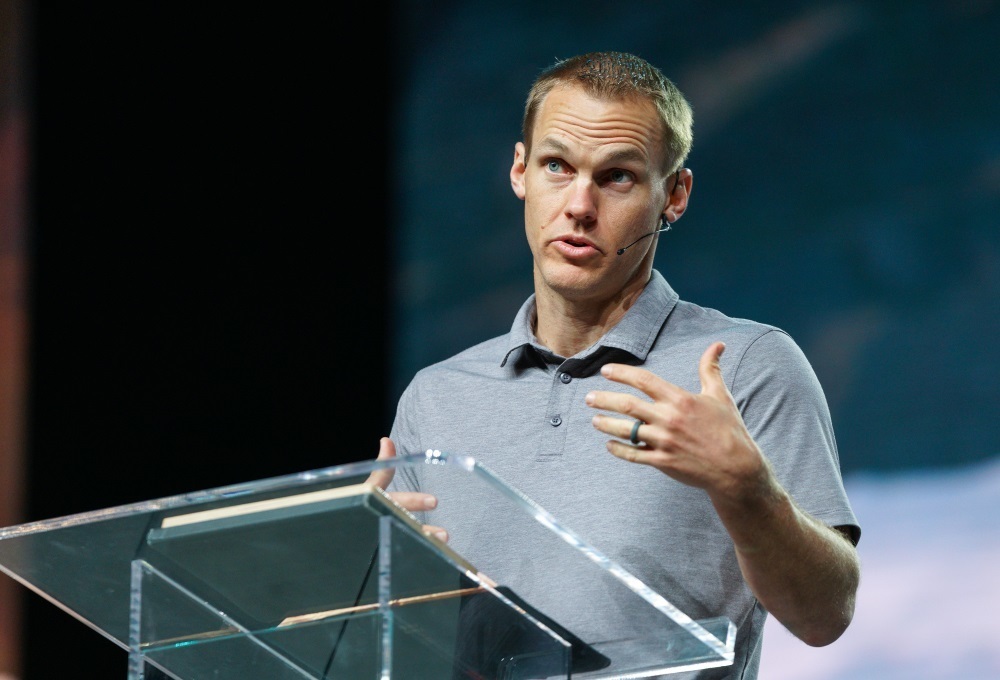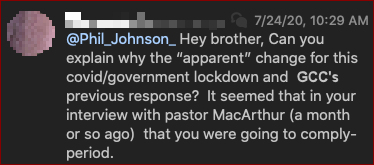Searched: COVID-19
News
Study: 24 percent of clergy in North Carolina are still opposed to same-sex marriage.
 After the departure of thousands of traditionalist United Methodist churches from the denomination over the past five years, it might stand to reason that those congregations remaining in the fold are more progressive and open to ordination and marriage of people in same-sex relationships.But the picture is far more mixed.A new report from the Religion and Social Change Lab at Duke University that looked at disaffiliating clergy from North Carolina’s two United Methodist conferences or regions found that even after the departures, 24 percent of North Carolina clergy remaining in the denomination disagree with allowing LGBTQ people to get married or ordained within the denomination.“At least some amount of ambivalence over LGBTQ+ issues among UMC clergy is likely to persist for years to come,” the report concluded.After a four-year COVID-19 delay and the departure of about 7,600 churches—a loss of 25 percent of all its US congregations—the denomination is likely to reconsider the issue of human sexuality when it convenes its top legislative body April 23–May 3 in Charlotte, North Carolina.Given that the denomination is a worldwide body, with hundreds of delegates from Africa and the Philippines, areas far more conservative in their views of human sexuality, it’s unclear whether the measures stand a chance of passing, even as the US delegation is far more open to such changes.Overall, the Duke report finds that disaffiliating North Carolina clergy were much more politically and theologically conservative than those who chose to remain. Some 85 percent of clergy who left the denomination disagreed with the notion that “all religious leadership positions should be open to people ...Continue reading... After the departure of thousands of traditionalist United Methodist churches from the denomination over the past five years, it might stand to reason that those congregations remaining in the fold are more progressive and open to ordination and marriage of people in same-sex relationships.But the picture is far more mixed.A new report from the Religion and Social Change Lab at Duke University that looked at disaffiliating clergy from North Carolina’s two United Methodist conferences or regions found that even after the departures, 24 percent of North Carolina clergy remaining in the denomination disagree with allowing LGBTQ people to get married or ordained within the denomination.“At least some amount of ambivalence over LGBTQ+ issues among UMC clergy is likely to persist for years to come,” the report concluded.After a four-year COVID-19 delay and the departure of about 7,600 churches—a loss of 25 percent of all its US congregations—the denomination is likely to reconsider the issue of human sexuality when it convenes its top legislative body April 23–May 3 in Charlotte, North Carolina.Given that the denomination is a worldwide body, with hundreds of delegates from Africa and the Philippines, areas far more conservative in their views of human sexuality, it’s unclear whether the measures stand a chance of passing, even as the US delegation is far more open to such changes.Overall, the Duke report finds that disaffiliating North Carolina clergy were much more politically and theologically conservative than those who chose to remain. Some 85 percent of clergy who left the denomination disagreed with the notion that “all religious leadership positions should be open to people ...Continue reading... |
Study: 24 percent of clergy in North Carolina are still opposed to same-sex marriage.
 After the departure of thousands of traditionalist United Methodist churches from the denomination over the past five years, it might stand to reason that those congregations remaining in the fold are more progressive and open to ordination and marriage of people in same-sex relationships.But the picture is far more mixed.A new report from the Religion and Social Change Lab at Duke University that looked at disaffiliating clergy from North Carolina’s two United Methodist conferences or regions found that even after the departures, 24 percent of North Carolina clergy remaining in the denomination disagree with allowing LGBTQ people to get married or ordained within the denomination.“At least some amount of ambivalence over LGBTQ+ issues among UMC clergy is likely to persist for years to come,” the report concluded.After a four-year COVID-19 delay and the departure of about 7,600 churches—a loss of 25 percent of all its US congregations—the denomination is likely to reconsider the issue of human sexuality when it convenes its top legislative body April 23–May 3 in Charlotte, North Carolina.Given that the denomination is a worldwide body, with hundreds of delegates from Africa and the Philippines, areas far more conservative in their views of human sexuality, it’s unclear whether the measures stand a chance of passing, even as the US delegation is far more open to such changes.Overall, the Duke report finds that disaffiliating North Carolina clergy were much more politically and theologically conservative than those who chose to remain. Some 85 percent of clergy who left the denomination disagreed with the notion that “all religious leadership positions should be open to people ...Continue reading... After the departure of thousands of traditionalist United Methodist churches from the denomination over the past five years, it might stand to reason that those congregations remaining in the fold are more progressive and open to ordination and marriage of people in same-sex relationships.But the picture is far more mixed.A new report from the Religion and Social Change Lab at Duke University that looked at disaffiliating clergy from North Carolina’s two United Methodist conferences or regions found that even after the departures, 24 percent of North Carolina clergy remaining in the denomination disagree with allowing LGBTQ people to get married or ordained within the denomination.“At least some amount of ambivalence over LGBTQ+ issues among UMC clergy is likely to persist for years to come,” the report concluded.After a four-year COVID-19 delay and the departure of about 7,600 churches—a loss of 25 percent of all its US congregations—the denomination is likely to reconsider the issue of human sexuality when it convenes its top legislative body April 23–May 3 in Charlotte, North Carolina.Given that the denomination is a worldwide body, with hundreds of delegates from Africa and the Philippines, areas far more conservative in their views of human sexuality, it’s unclear whether the measures stand a chance of passing, even as the US delegation is far more open to such changes.Overall, the Duke report finds that disaffiliating North Carolina clergy were much more politically and theologically conservative than those who chose to remain. Some 85 percent of clergy who left the denomination disagreed with the notion that “all religious leadership positions should be open to people ...Continue reading... |
Study: 24 percent of clergy in North Carolina are still opposed to same-sex marriage.
 After the departure of thousands of traditionalist United Methodist churches from the denomination over the past five years, it might stand to reason that those congregations remaining in the fold are more progressive and open to ordination and marriage of people in same-sex relationships.But the picture is far more mixed.A new report from the Religion and Social Change Lab at Duke University that looked at disaffiliating clergy from North Carolina’s two United Methodist conferences or regions found that even after the departures, 24 percent of North Carolina clergy remaining in the denomination disagree with allowing LGBTQ people to get married or ordained within the denomination.“At least some amount of ambivalence over LGBTQ+ issues among UMC clergy is likely to persist for years to come,” the report concluded.After a four-year COVID-19 delay and the departure of about 7,600 churches—a loss of 25 percent of all its US congregations—the denomination is likely to reconsider the issue of human sexuality when it convenes its top legislative body April 23–May 3 in Charlotte, North Carolina.Given that the denomination is a worldwide body, with hundreds of delegates from Africa and the Philippines, areas far more conservative in their views of human sexuality, it’s unclear whether the measures stand a chance of passing, even as the US delegation is far more open to such changes.Overall, the Duke report finds that disaffiliating North Carolina clergy were much more politically and theologically conservative than those who chose to remain. Some 85 percent of clergy who left the denomination disagreed with the notion that “all religious leadership positions should be open to people ...Continue reading... After the departure of thousands of traditionalist United Methodist churches from the denomination over the past five years, it might stand to reason that those congregations remaining in the fold are more progressive and open to ordination and marriage of people in same-sex relationships.But the picture is far more mixed.A new report from the Religion and Social Change Lab at Duke University that looked at disaffiliating clergy from North Carolina’s two United Methodist conferences or regions found that even after the departures, 24 percent of North Carolina clergy remaining in the denomination disagree with allowing LGBTQ people to get married or ordained within the denomination.“At least some amount of ambivalence over LGBTQ+ issues among UMC clergy is likely to persist for years to come,” the report concluded.After a four-year COVID-19 delay and the departure of about 7,600 churches—a loss of 25 percent of all its US congregations—the denomination is likely to reconsider the issue of human sexuality when it convenes its top legislative body April 23–May 3 in Charlotte, North Carolina.Given that the denomination is a worldwide body, with hundreds of delegates from Africa and the Philippines, areas far more conservative in their views of human sexuality, it’s unclear whether the measures stand a chance of passing, even as the US delegation is far more open to such changes.Overall, the Duke report finds that disaffiliating North Carolina clergy were much more politically and theologically conservative than those who chose to remain. Some 85 percent of clergy who left the denomination disagreed with the notion that “all religious leadership positions should be open to people ...Continue reading... |
 A federal appeals court panel has upheld a lower court decision rejecting a lawsuit by a California church suing a county for the restrictions imposed during the COVID-19 pandemic. A federal appeals court panel has upheld a lower court decision rejecting a lawsuit by a California church suing a county for the restrictions imposed during the COVID-19 pandemic. |
Jody Hice joined NTD News' Capitol Report to discuss his new book, Sacred Trust. He also comments on election integrity, and his experiences in Congress during the COVID-19 pandemic that inspired him to write his book....
|
The Cove, which held its first event last November, prohibits smoking or drinking and plays only Christian music including hip-hop, bachata, and reggaeton. The founders of the venue are seven Black Christian men in their twenties who felt that church attendance has been declining since the COVID-19 pandemic.
|
 In an interview with The Christian Post, Pastor David Platt opens up about the "surreal" moment he and his family were united with J.D., their adopted son from China, following a years-long delay due to COVID-19 travel-related restrictions, and the challenges other adoptive families continue to face. In an interview with The Christian Post, Pastor David Platt opens up about the "surreal" moment he and his family were united with J.D., their adopted son from China, following a years-long delay due to COVID-19 travel-related restrictions, and the challenges other adoptive families continue to face. |
 In the last couple of weeks, three issues have dominated debate in Britain: the Israeli/Hamas war in Gaza, the COVID-19 inquiry and Rishi Sunak's migration deal with the Rwandan government. Of the three, the British and Rwandan government’s plan designed...The post Despite a Supreme Court judgment stopping Britain's migration deal with Rwanda, Sunak administration presses on appeared first on Baptist News Global. In the last couple of weeks, three issues have dominated debate in Britain: the Israeli/Hamas war in Gaza, the COVID-19 inquiry and Rishi Sunak's migration deal with the Rwandan government. Of the three, the British and Rwandan government’s plan designed...The post Despite a Supreme Court judgment stopping Britain's migration deal with Rwanda, Sunak administration presses on appeared first on Baptist News Global. |
This is not a call to trust our leaders. It's a call for leaders to be more trustworthy.
 The most important aspect of leadership is not competence, communication or innovation.It’s integrity.When we can’t trust our leaders, life can turn really bad, really fast. Even deadly.We’re seeing it in real time right now. The current COVID-19 (coronavirus) crisis will be made better by our ability to trust those in leadership or made worse by our lack of ability to trust them.Let’s pray that the weight of it will lean heavily toward trust and trustworthiness.A Call To TrustworthinessThis is not about any specific political or church leader. Right now, there’s plenty of distrust – and good reasons for it – on all sides.This is also not a call to trust our leaders. It’s a call for leaders to be more trustworthy.When they’re not (when we’re not) people die.In other times, when life is moving along relatively normally, untrustworthy leadership is a cause for debate, ridicule, even mockery. But when things go bad, lack of trust in leadership gets people killed.Earned DistrustIn the current crisis, for instance, there were many people, early on, who doubted the necessity of self-quarantine – and some who still do. Why? Often because they doubted the truthfulness of the people giving them this information.From politicians, to medical, religious and educational leaders, everyone has earned some degree of distrust from us.And I do mean earned. Distrust is not primarily the fault of the followers, but of the leaders who have given us plenty of reasons not to trust them.How To Regain TrustIf you are in a position of leadership, now more than ever we need to be able to trust you. And there’s only one way to do that.Be trustworthy.Do the right thing.Every time.Continue reading... The most important aspect of leadership is not competence, communication or innovation.It’s integrity.When we can’t trust our leaders, life can turn really bad, really fast. Even deadly.We’re seeing it in real time right now. The current COVID-19 (coronavirus) crisis will be made better by our ability to trust those in leadership or made worse by our lack of ability to trust them.Let’s pray that the weight of it will lean heavily toward trust and trustworthiness.A Call To TrustworthinessThis is not about any specific political or church leader. Right now, there’s plenty of distrust – and good reasons for it – on all sides.This is also not a call to trust our leaders. It’s a call for leaders to be more trustworthy.When they’re not (when we’re not) people die.In other times, when life is moving along relatively normally, untrustworthy leadership is a cause for debate, ridicule, even mockery. But when things go bad, lack of trust in leadership gets people killed.Earned DistrustIn the current crisis, for instance, there were many people, early on, who doubted the necessity of self-quarantine – and some who still do. Why? Often because they doubted the truthfulness of the people giving them this information.From politicians, to medical, religious and educational leaders, everyone has earned some degree of distrust from us.And I do mean earned. Distrust is not primarily the fault of the followers, but of the leaders who have given us plenty of reasons not to trust them.How To Regain TrustIf you are in a position of leadership, now more than ever we need to be able to trust you. And there’s only one way to do that.Be trustworthy.Do the right thing.Every time.Continue reading... |
This is a serious and difficult time. Quarantines are hard. But we can do more than endure, we can step up and be strong.
 Over the next few weeks there will be a lot of people quarantined in their homes in an all-out attempt to mitigate the effects of COVID-19 (Coronavirus).This is cause for concern, but it need not be a cause for fear. Especially if we prepare well for it.But what exactly can we do while isolated – either alone or with family – for days or weeks at a time?A lot of people are already adding to their TV-watching queues. That’s not wrong – I plan to watch some TV and movies myself. But if that’s all we do, we will have added to the problem by squandering our time.Fighting Fear By Fighting BoredomStaving off boredom may seem like a trivial issue. And it is certainly not as severe as the medical and financial challenges many are facing. But it is not trivial.Fear is a very real issue right now. And fears tend to grow when we’re passive, but diminish when we’re active.So let’s keep busy. But not just for the sake of busyness. Let’s use this as an opportunity to do activities that add value to our lives and the lives of others.Here are a few ideas:1. ReadStart with the Bible. Depending how long this goes, you might cover a lot of territory, or go really deep into a book that touches your heart.Also, you can catch up on books that can teach you something new.Enjoy a novel or biography.Join an online book club with friends, or join an existing site like Goodreads.2. WriteProcess your thoughts, feelings and ideas in a journal or diary. This is a greatBlog.Write a book that someone else might want to read. I can tell you from personal experience, there are more people who want to read what you have to say than you might think.Send cards or letters to friends.3. CreateThis would be ...Continue reading... Over the next few weeks there will be a lot of people quarantined in their homes in an all-out attempt to mitigate the effects of COVID-19 (Coronavirus).This is cause for concern, but it need not be a cause for fear. Especially if we prepare well for it.But what exactly can we do while isolated – either alone or with family – for days or weeks at a time?A lot of people are already adding to their TV-watching queues. That’s not wrong – I plan to watch some TV and movies myself. But if that’s all we do, we will have added to the problem by squandering our time.Fighting Fear By Fighting BoredomStaving off boredom may seem like a trivial issue. And it is certainly not as severe as the medical and financial challenges many are facing. But it is not trivial.Fear is a very real issue right now. And fears tend to grow when we’re passive, but diminish when we’re active.So let’s keep busy. But not just for the sake of busyness. Let’s use this as an opportunity to do activities that add value to our lives and the lives of others.Here are a few ideas:1. ReadStart with the Bible. Depending how long this goes, you might cover a lot of territory, or go really deep into a book that touches your heart.Also, you can catch up on books that can teach you something new.Enjoy a novel or biography.Join an online book club with friends, or join an existing site like Goodreads.2. WriteProcess your thoughts, feelings and ideas in a journal or diary. This is a greatBlog.Write a book that someone else might want to read. I can tell you from personal experience, there are more people who want to read what you have to say than you might think.Send cards or letters to friends.3. CreateThis would be ...Continue reading... |
Online Church: How the world worshipped With Covid-19 forcing much of the world into lockdown, churches have responded by diving into online services. Whether using Zoom, Facebook Live, YouTube or more complex set ups such as OBS, tech, pastoral and worship teams have found themselves in a steep learning curve in recent weeks. This article […]Please visit Musicademy for the full article.The post How the world worshipped this week: sharing your online services appeared first on Musicademy.
|
by Phil Johnson
  ot this question today in more than one Tweet (regarding the Grace Church elders' statement "Christ, Not Caesar, Is Head of the Church"), so I'll answer it here: ot this question today in more than one Tweet (regarding the Grace Church elders' statement "Christ, Not Caesar, Is Head of the Church"), so I'll answer it here: Thanks for the question. I'll answer candidly. Speaking for myself alone, I'll acknowledge that yes, my thinking on the question of the COVID-19 quarantine and Romans 13 has changed somewhat—or at least been refined, illuminated, qualified, and enriched. I've been forced by circumstances to rethink and amplify my answers carefully because of the government's relentless attempts to keep churches closed despite the fact that months have passed without the apocalyptic quotas of death and disease that were originally predicted. My original concern about the virus was clearly overblown. At the time, I needed to be cautious, because we could not possibly know how serious the threat really was. My concern now is for people whose need for fellowship and pastoral care is going unmet. I do have firsthand knowledge of how critical this emergency is.In the weeks since March several things happened that affect my perspective. For one thing, the California Governor's edicts have become increasingly onerous.He has told churches they should not have congregational singing.He wants to limit church attendance to 100 (even in a massive 3,000-seat auditorium).He says churches are "nonessential" while insisting that marijuana dispensaries, liquor stores, and casinos are vital businesses that must be kept open.Although he briefly showed signs of backing off the policy of church closures, he then immediately doubled down to try to force the mandatory re-closure of all places of worship "indefinitely" (even though there's no evidence churches have been hotspots for passing the virus).Meanwhile, government officials have not only permitted but actively encouraged mass demonstrations (including riots) for political causes.With all of that going on, I was forced to rethink my position on Romans 13. The elders of our church also realized the need for us to answer in greater detail the question of who has the authority to govern the doctrine, worship, and polity of the church. The elders' statement that was affirmed on July 23 and made public the following day is the result. It's a clarification and qualification of everything we have previously said about the duty imposed on us by Romans 13 and 1 Peter 2. Without denying that duty, we're endeavoring to explain biblically why those passages don't call for blind, automatic acquiescence to government overreach into church business.It is of course still the case that in a real and impending health crisis, the elders and pastors of a church may wisely decide to follow the recommendations of health officials with regard to protecting against dangerous contagions. That's precisely what we did at the start of the quarantine. Circumstances have changed, however, and we have adapted (and explained) our response accordingly.An observant person who has been following me might have noticed subtle shifts in my position since the quarantine began. I knew from the start that things might change if politicians began to use the health crisis in an opportunistic way. When explaining our position on Romans 13 several weeks ago, I wrote this: How long until the government-ordered quarantine is undeniably excessive, or we conclude that it's targeted persecution against our worship and therefore an illegal attempt to make us disobey Hebrews 10:25? That time may come, and when it does, we may have to implement the principle of Acts 5:29. The question of whether we have already passed that point is another subjective issue Thanks for the question. I'll answer candidly. Speaking for myself alone, I'll acknowledge that yes, my thinking on the question of the COVID-19 quarantine and Romans 13 has changed somewhat—or at least been refined, illuminated, qualified, and enriched. I've been forced by circumstances to rethink and amplify my answers carefully because of the government's relentless attempts to keep churches closed despite the fact that months have passed without the apocalyptic quotas of death and disease that were originally predicted. My original concern about the virus was clearly overblown. At the time, I needed to be cautious, because we could not possibly know how serious the threat really was. My concern now is for people whose need for fellowship and pastoral care is going unmet. I do have firsthand knowledge of how critical this emergency is.In the weeks since March several things happened that affect my perspective. For one thing, the California Governor's edicts have become increasingly onerous.He has told churches they should not have congregational singing.He wants to limit church attendance to 100 (even in a massive 3,000-seat auditorium).He says churches are "nonessential" while insisting that marijuana dispensaries, liquor stores, and casinos are vital businesses that must be kept open.Although he briefly showed signs of backing off the policy of church closures, he then immediately doubled down to try to force the mandatory re-closure of all places of worship "indefinitely" (even though there's no evidence churches have been hotspots for passing the virus).Meanwhile, government officials have not only permitted but actively encouraged mass demonstrations (including riots) for political causes.With all of that going on, I was forced to rethink my position on Romans 13. The elders of our church also realized the need for us to answer in greater detail the question of who has the authority to govern the doctrine, worship, and polity of the church. The elders' statement that was affirmed on July 23 and made public the following day is the result. It's a clarification and qualification of everything we have previously said about the duty imposed on us by Romans 13 and 1 Peter 2. Without denying that duty, we're endeavoring to explain biblically why those passages don't call for blind, automatic acquiescence to government overreach into church business.It is of course still the case that in a real and impending health crisis, the elders and pastors of a church may wisely decide to follow the recommendations of health officials with regard to protecting against dangerous contagions. That's precisely what we did at the start of the quarantine. Circumstances have changed, however, and we have adapted (and explained) our response accordingly.An observant person who has been following me might have noticed subtle shifts in my position since the quarantine began. I knew from the start that things might change if politicians began to use the health crisis in an opportunistic way. When explaining our position on Romans 13 several weeks ago, I wrote this: How long until the government-ordered quarantine is undeniably excessive, or we conclude that it's targeted persecution against our worship and therefore an illegal attempt to make us disobey Hebrews 10:25? That time may come, and when it does, we may have to implement the principle of Acts 5:29. The question of whether we have already passed that point is another subjective issue |
Ashland Avenue Regathering Plan CORONAVIRUS (COVID-19) 3/18/20 Update Ashland Avenue Baptist Church's Plans, Precautions, and Encouragement Ashland Family, We love y'all and can't imagine facing this health crisis without an amazing family like y'all. We would encourage each of [...]The post COVID-19 (Coronavirus) Update appeared first on Ashland Avenue Baptist Church.
|
Ashland Avenue Regathering Plan CORONAVIRUS (COVID-19) 3/18/20 Update Ashland Avenue Baptist Church's Plans, Precautions, and Encouragement Ashland Family, We love y'all and can't imagine facing this health crisis without an amazing family like y'all. We would encourage each of [...]The post COVID-19 (Coronavirus) Update appeared first on Ashland Avenue Baptist Church.
|



 Links
Links  Articles
Articles  Blogs
Blogs  Videos
Videos  News
News  Colors
Colors 

 New links
New links

